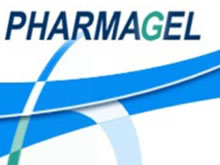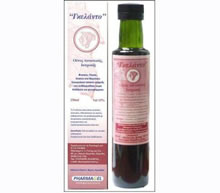
Λεξικό .. Beta blockers
Beta-blockers are prescribed for a variety of cardiovascular conditions including hypertension, heart failure, primary treatment of myocardial infarction (MI), and secondary prevention of ischemic cardiac events. Yet they remain underprescribed in populations at increased risk for cardiovascular disease because of tolerability and safety concerns. Beta-blockers are heterogeneous with respect to pharmacokinetic and pharmacodynamic effects. "Original" agents were nonselective, blocking both beta1-adrenoceptors and beta2-adrenoceptors. Later, new agents were developed with selectivity for beta1-adrenoceptors, and were subsequently followed by beta-blockers, which exhibit additional effects, such as vasodilation. Among newer agents, labetalol, carvedilol, and nebivolol have been approved for use in the United States. Nebivolol possesses both beta1-selectivity and nitric oxide-mediated vasodilatory effects, while carvedilol has attractive effects on insulin resistance and exhibits antioxidant effects. Newer beta-blockers may overcome concerns about efficacy, adverse effects, and tolerability, while delivering cardiovascular protection [1].
Beta-blockers are cardioprotective drugs which are contra indicated in asthma including their use in eyedrops. In patients with coronary artery disease calcium antagonists such as nifedipine and verapamil can frequently be used instead. Beta blockade has two major types of adverse effects during anaphylaxis treatment. 1) β-blockade is proallergic since it both blocks smooth muscle relaxation and amplifies the production of anaphylactic mediators, thus increasing the severity of any allergic reaction. 2) β-blockade may cause hypertensive crisis due to unopposed α-adrenergic effects of epinephrine given to treat the anaphylaxis. β-blockers are available in three subclasses: non-selective, β1 selective and combination of α-blocker and β-blocker. β1-selectivity means that the drug has relatively less bronchoconstricting effect (mediated by β2-receptors) than its effects on the heart (mediated by β1 receptors), and theoretically should be less likely to cause harm when used in allergic persons. However, the effects of β-blockers on mediator production are nonselective, and thus even β1-selective drugs are proallergic [2].
References
1. Manrique C, Giles TD, Ferdinand KC, Sowers JR. Realities of newer beta-blockers for the management of hypertension. Clin Hypertens (Greenwich). 2009 Jul;11(7):369-75.
2. Gordon, B.R.: Prevention and management of office allergy emergencies. Otolaryngologic clinics of N. America. 1992:25(1):119-134.
Γκέλης Ν.Δ. - Λεξικό Αλλεργίας - Εκδόσεις ΒΕΛΛΕΡOΦΟΝΤΗΣ - Κόρινθος 2013
Gelis Ν.D. - Dictionary of Allergies - VELLEROFONTIS Publications - Corinth 2013




